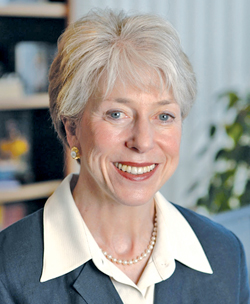Tale of kickbacks in healthcare IT

Is it wrong to be skeptical about the integrity of quality measures in meaningful use, particularly in the wake of what one quality-improvement expert called "patient safety's first scandal"?
Those at the forefront of the healthcare quality and patient safety movements say no, but also believe any problems have been contained.
As many in healthcare know, the U.S. Department of Justice charged medical device and supplies manufacturer CareFusion with paying kickbacks and with off-label promotion of its products. In January, Justice officials announced a settlement, in which San Diego-based CareFusion would pay a $40.1 million fine to the federal government, but not admit to any crime.
Notably, DOJ alleged that CareFusion and its predecessor company – CareFusion is the result of a 2009 spinoff from Cardinal Health – paid Austin, Texas, physician Charles R. Denham, MD, $11.6 million in "kickbacks" to promote his products.
[See also: Cardinal Health to name spinoff after CareFusion line, announces amended consent decree.]
Denham, founder of a patient safety organization called the Texas Medical Institute of Technology (TMIT), happened to co-chair the steering committee of the National Quality Forum's Safe Practices for Better Healthcare program in 2006, 2009 and 2010. The Centers for Medicare and Medicaid Services happens to base meaningful use requirements on quality measures endorsed by NQF, so it's easy to wonder if meaningful use may have been compromised.
"When companies pay kickbacks to doctors, especially doctors involved in setting standards for the healthcare industry, they undermine the integrity of the healthcare system," DOJ's Stuart F. Delery said in announcing the settlement. "Corrupting the standard-setting process through kickbacks can affect the healthcare treatment choices that doctors and hospitals may make for patients."
For its part, NQF says there is nothing to worry about at this point.
 "It is important to put this in perspective," according to NQF President and CEO Christine Cassel, MD, who took the helm of the Washington-based organization last summer. "NQF severed all relations with Dr. Denham in 2010," Cassel says.
"It is important to put this in perspective," according to NQF President and CEO Christine Cassel, MD, who took the helm of the Washington-based organization last summer. "NQF severed all relations with Dr. Denham in 2010," Cassel says.
[See also: NQF names new president.]
More recently, National Quality Forum performed an audit of the 2010 update to its "Safe Practices for Better Healthcare" report. (The audit committee included Robert M. Wachter, MD, chief hospitalist at the University of California, San Francisco, who wrote the January commentary about "patient safety's first scandal.")
The initial audit results, released for public comment March 31, mostly found that the recommended safe practices were trustworthy, though the committee did propose a revision to Safe Practice 21, dealing with prevention of bloodstream infections from central lines. "It wasn't incorrect," Cassel says, though it was "somewhat misleading." In any case, she says, this item is not related to meaningful use.
"I don't think we have anything to apologize for," Cassel adds. "I'm quite confident about the credibility of NQF."
Brent James, MD, chief quality officer of Intermountain Healthcare in Salt Lake City and executive director of Intermountain's Institute for Health Care Delivery, largely agrees, saying that there were "never any allegations of inappropriate financial inducement" to favor certain quality measures over others.
"The fact is, quality measurement really is a technical issue," according to James, who sits on the board responsible for NQF's strategic framework, and also is on the board of the National Patient Safety Foundation and a member of the Institute of Medicine.
The strategic framework called for an evidence-based structure of recommending quality measures, though James says NQF settled on a more political composition in order to gain consensus for its recommendations. "This political approach is what allowed this to slip through," James says.
Still, NQF and the healthcare quality community caught the apparent wrongdoing before much actual damage was done to anything other than Denham's and CareFusion's reputations. "It shows that the system worked," James says. However, it highlighted what James calls the "absolute requirement" for transparency.
For her part, Cassel says NQF's "processes are completely transparent." There is no reason not to believe her, especially since the organization just went through an audit of any work that may have been tainted by Denham's association.
But will the scandal cast additional doubt on the $27 billion federal EHR incentive program just as CMS is getting to work on Stage 3 rules? "It leads to the meaningful use criteria being less accepted than they could have been," says James.
























